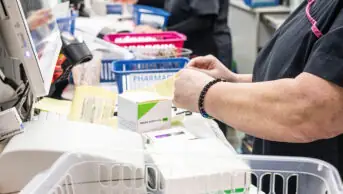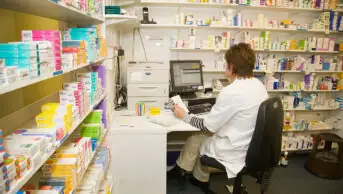
Shutterstock.com
Community pharmacists in England can now register for training in clinical examination and consulting skills, Health Education England (HEE) has announced.
In August 2022, The Pharmaceutical Journal reported that HEE had tendered a contract worth £2m for a company to provide the training to 10,000 community pharmacists by March 2024.
According to a statement from HEE, published on 16 March 2023, this fully funded training will be run by CliniSkills (Clinical Skills Training England) and will involve e-learning modules with optional face-to-face attendance for pharmacists who may find this helpful. Part-time staff and locums are eligible to take part.
Community pharmacists will need to pass an initial online module in history taking, before being able to move on to take specialised modules in dermatology, cardiology, ear nose and throat, and paediatric care.
The training, which HEE said can be completed at a pace and time of the pharmacist’s choice, is designed to complement independent prescriber training and can be taken before or after independent prescribing training.
In February 2023, HEE announced plans to launch another 3,000 funded independent prescriber training places for pharmacists in England from April 2023.
This, in addition to the clinical examination skills training, are being funded through HEE’s Pharmacy Integration Programme, which received £15.9m in November 2021 to improve career development opportunities for pharmacy teams in England.
David Webb, chief pharmaceutical officer at NHS England, said: “The offer of clinical examination skills training supports the clinical future and career progression for pharmacists, either as a skills’ refresh for existing prescribers who wish to extend their practice, or to help pharmacists support newly qualified prescribers, or as a step towards independent prescribing training.”
Alan Ryan, deputy chief operating officer at HEE, added: “This new clinical examination skills training offer has been designed to directly support the training needs identified through engagement with community pharmacists and community pharmacy leaders, drawing on their experiences of the changing landscape of clinical activities in the community pharmacy setting.”


